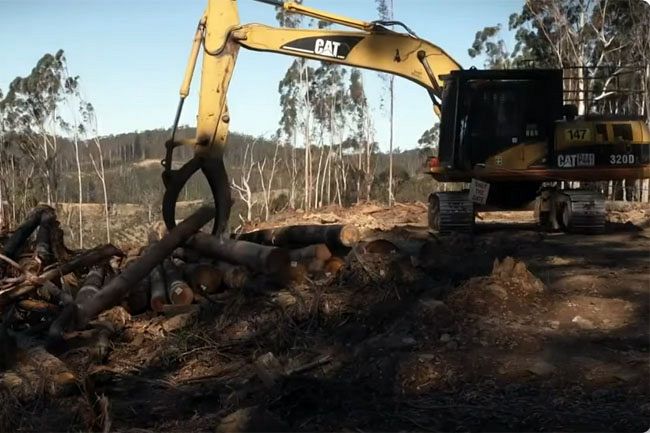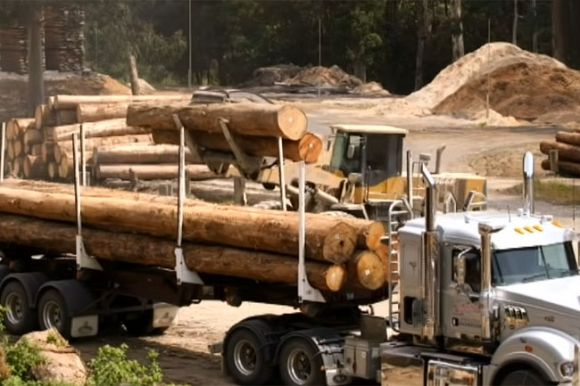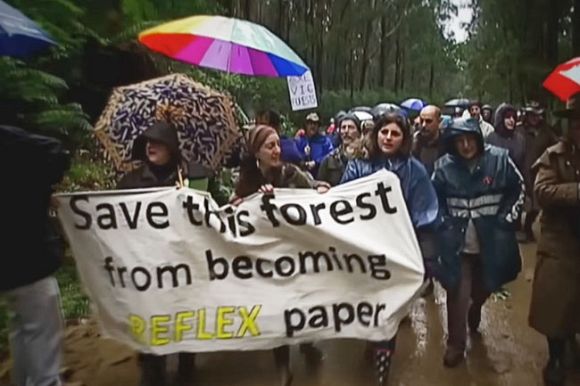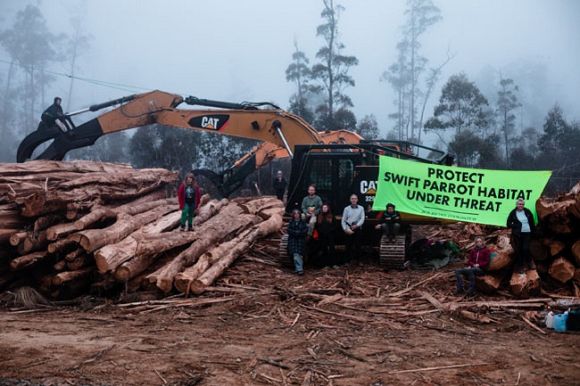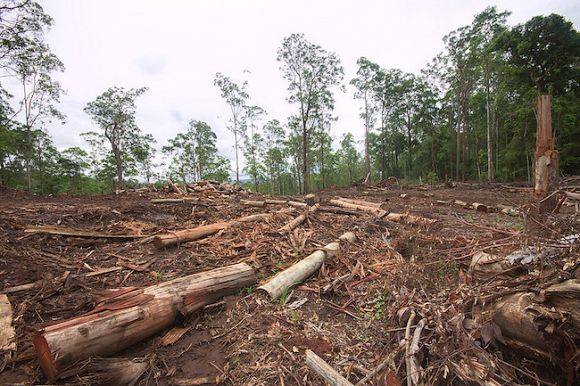Former Australian Conservation Foundation chief, Geoff Cousins, declared war on the NSW forestry industry last week, no doubt causing some political indigestion.
An extremely successful businessman, Cousins worked as chairman and CEO of George Patterson, one of the biggest advertising firms in Australia. His achievements across the board are significant. Cousins is a man of his word.
As an environmental activist, Cousins doesn’t mess around. His best-known campaigns stopped the Gunns Pulp mill in Tasmania and the proposed Woodside gas hub in the Kimberley.
Cousins wants an end to all native forest logging in NSW’s native forests and the removal of the chair of the state-owned Forestry Corporation, Stefanie Loader.
According to an article in the Sydney Morning Herald, Cousins is willing to devote his ‘full resources’ to a campaign. At 81 years of age, Cousin’s broad experience and contacts are unrivalled.
He’ll need them.
In this age of gaslighting, the article quotes Stefanie Loader’s contribution:
“Forestry Corporation has also for many years maintained independent certification to the Australian Standard for Sustainable Forest Management — Responsible Wood and the Environment Protection Authority continually audits operations for compliance with the rules.”
Standards are widely used both in Australia and internationally. Unfortunately, most people are unaware that not only are standards voluntary but most are developed by the industries involved. Forestry standards are voluntary, developed by the timber industry.
In other words, self-regulation with no transparency or accountability. The failure of the forestry standards, as currently practised, fulfils the ASIC definition of greenwashing.
NSW and Tasmania forestry agencies certify all harvest plans as timber coming from “sustainably managed forest”.
The certification and standards have been developed by Australian Forestry Standards Pty Ltd (AFS), trading as Responsible Wood, a not-for-profit company listed under ASIC. All directors are involved in the timber industry, including Michael O’Connor, CFMEU and the forestry union. Responsible Wood acts as an umbrella organisation for certification operators.
In a submission to a House of Representatives standing committee Inquiry into the Australian Forestry Industry in 2011, the terms of reference of the AFS Limited standard were set out in their submission:
The Australian Standard® for Forest Management
- The only Australian Standard® for sustainable forests.
- Requires broad stakeholder engagement.
- Protects biodiversity.
- All harvested areas are fully regenerated.
- Maintains healthy ecosystems.
- Protects water and soil.
- Manages forests for carbon storage.
- Safeguards heritage values and Indigenous culture.
- Protects the safety of workers, local jobs and communities.
Certification is a vehicle towards a sustainable future — use more wood it is 100 per cent natural and renewable, and it is a positive contributor to climate change adoption.
Certification is a vehicle that can be used in conjunction with other vehicles to achieve the best environmental solution.
No changes appear to have been made in the current terms of reference.
Responsible Wood’s website claims:
Australia’s federal, state and territory ministers endorse the Forest Management Standard as “the first purely Australian Standard designed to define environmental performance and sustainability in the forestry industry”.
[The standards] provide guidance and accountability to forest managers, manufacturers and suppliers. They protect and promote Australia’s unique environments by ensuring a forestry industry that is environmentally, economically, socially and culturally sustainable.
Any suggestion that forestry industry certification “protects and promotes Australia’s unique environments” is likely to cause scientists, conservation and community organisations to choke on their Corn Flakes.
Two recent judgements in NSW Land and Environment Court and the Federal Court allow the timber industry to rely solely on outdated approvals as evidence of “ecologically sustainable management”. NSW Forestry Corporation can rely on a 2018 approval known as the Coastal Integrated Forestry Operations Approval (CIFOA).
At the federal level, a similar ruling allows Regional Forest Agreements between the Commonwealth, NSW and Tasmania to rely on the re-approval of the agreements in 2018 as evidence of “ecologically sustainable management”.
Forest conservationists say the current situation is not only unsustainable, but there’s an urgent need for a royal commission into the forestry industry, as well as NSW, Tasmania and federal government failure to provide legal protection for forest flora and fauna in order to protect the industry.
Responsible Wood’s claims are readily refuted.
Economically sustainable? Forestry Corporation suffered a $9 million loss in 2021-22 and $20 million in 2020-21.
Socially sustainable? Ask any community living near forestry operations with huge logging trucks, bulldozers, dust, noise and terrible destruction whether industrial logging is socially sustainable.
An Australian Institute survey which found seven in ten Australians support native forest logging bans in NSW and Tasmania.
Culturally sustainable? Indigenous elders have mounted several legal challenges against industrial logging in NSW native forests in the Land and Environment Court as they seek to protect their culture and native title.
Forestry Corporation claims:
‘More than 98 per cent of timber supplied by Forestry Corporation of NSW is certified to the Australian Standard for Sustainable Forest Management.’
All approved harvest plans in NSW and Tasmanian native forests include certification from the Australian Standard for Sustainable Forest Management.
The 86-page standard is a comprehensive document which, if carried out prior to certifying every harvest plan, would ensure major research on ground monitoring and attention to the recent legal judgements.
According to Responsible Wood:
‘During an audit, the auditor will assess whether practices on the ground meet the Standards through, for example, field visits and consultations with stakeholders.’
A search of certifiers failed to reveal any inclusion of independent scientists with expertise in forest flora, fauna, soil, eucalypt species, invertebrate, riparian zones as auditors. Nor any field visits and details of consultations with stakeholders. Methodology is not addressed.
BSI Group is one of the certifiers. Its certification list includes Sustainable Timber Tasmania and NSW Forestry Corporation. Both organisations are the focus of legal challenges, significant scientific concern over ecological issues and community opposition.
According to Forestry Corporation’s CEO, Responsible Wood and the Environment Protection Authority (EPA) are continually auditing operations for compliance with the rules.
There’s no evidence that Responsible Wood is undertaking any compliance monitoring in the certification documents or audits available. In any event, it would appear the only punishment would be non-certification of a harvest plan. The EPA’s role in compliance is fragmented, as many complaints by forest activists detailing non-compliance with photographic and scientific evidence are ignored.
Last year, a NSW wildlife charity requested the EPA carry out an extensive review of the forestry operations approval, focused on the extraordinary level of damage caused by the 2019-2020 wildfires, fuelled by climate change.
The request was supported by a scientific submission signed off by Australian Academy of Science Fellows and national and international scientists.
The EPA rejected the request.
A review of CIFOA was due last year, the first since the signing of the approval in 2018.
Given the sheer scope of the wildfires’ destruction of biodiversity, soil, riparian zones, ecosystems and invertebrates, the refusal to carry out an urgently needed review was plainly politically driven.
Given the failure of the Regional Forest Agreements to undertake a review since 2014, neither the NSW, Tasmanian, nor federal governments have any accurate baseline on which to build a foundation of adequate environmental protection for forest biodiversity.
Geoff Cousins’s focus is summed up in the Sydney Morning Herald article:
'Here in NSW we’ve got a situation where illegal activities and unethical activities and destruction of habitat with endangered species are carried out by the very organisation that is part of the government that’s supposed to be protecting it.'
Tasmanian activists would echo his words.
The burning question remains: What will it take to force these governments to ban logging in native forests in the face of overwhelming community opposition and scientific evidence?
Sue Arnold is an IA columnist and freelance investigative journalist. You can follow Sue on Twitter @koalacrisis.
Related Articles
- Governments turning deaf ears on logging outrage
- Politicians persist in plundering the planet for profit
- Tasmanian Liberals’ ecocide
- Mark McGowan must stand tall on future promise to protect forests
- To be real on climate, Labor must end logging of native forests
 This work is licensed under a Creative Commons Attribution-NonCommercial-NoDerivs 3.0 Australia License
This work is licensed under a Creative Commons Attribution-NonCommercial-NoDerivs 3.0 Australia License
Support independent journalism Subscribe to IA.



